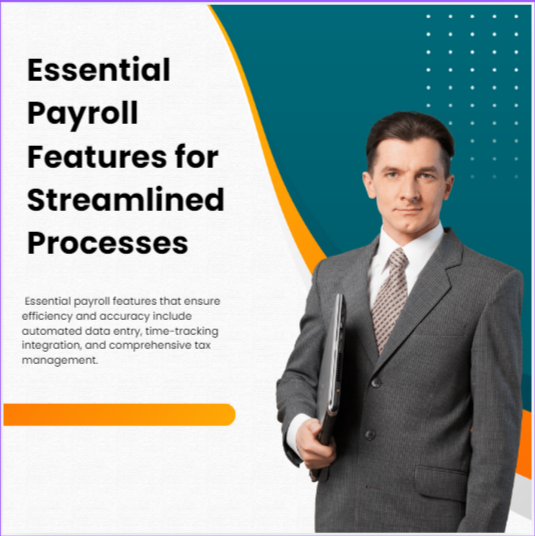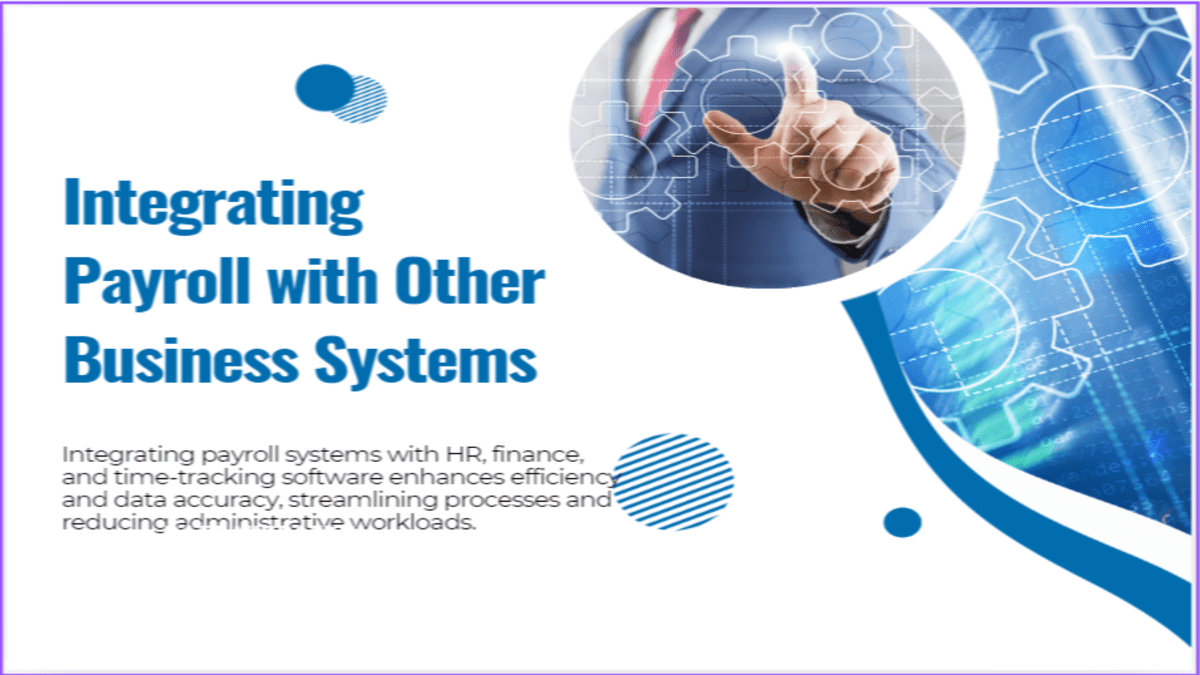Payroll management is often seen as a back-office task, but its impact on a business is immense. Efficient payroll management not only ensures that employees are paid accurately and on time, but it also boosts employee satisfaction, minimizes errors, and helps the company stay compliant with tax laws and labor regulations. In essence, payroll is the backbone of financial stability within any organization.
When payroll runs smoothly, employees feel valued and secure, which can lead to increased motivation and productivity. Conversely, frequent payroll errors or delays can cause frustration and mistrust, potentially leading to higher turnover rates. Therefore, investing in robust payroll systems and processes is crucial for maintaining a happy and productive workforce.
The Importance of Efficient Payroll Management

Moreover, efficient payroll management software can save a company both time and money. Automated payroll solutions reduce the need for manual data entry, decreasing the likelihood of mistakes and freeing up HR and finance teams to focus on more strategic tasks. These modern systems can also provide valuable insights through analytics, helping businesses make informed decisions related to staffing and budgeting.
In today’s competitive business environment, where compliance requirements are constantly evolving, having a reliable payroll system is more important than ever. Non-compliance can result in hefty fines and legal issues, which can tarnish a company’s reputation and financial standing.
Efficient payroll management is not just about cutting checks; it’s about creating a foundation for operational success, legal compliance, and long-term business growth. By prioritizing accurate and timely payroll processing, businesses can pave the way for sustainable success and a stronger, more satisfied workforce.
Key Functions of Payroll in Enhancing Business Operations

Payroll isn’t just about calculating salaries and disbursing funds; it’s a cornerstone of efficient business operations.
1. Timely and Accurate Employee Payments:
One of the primary functions of payroll is to ensure timely and accurate payment to employees. This reliability not only boosts employee morale but also fosters a trustworthy relationship between staff and management. When employees know they can count on getting paid correctly and on time, they’re more likely to stay motivated and productive.
2. Supporting Budget Management:
Additionally, payroll plays a crucial role in budget management. By accurately tracking labor costs, businesses can forecast expenses, allocate resources more efficiently, and make informed financial decisions. This level of financial insight is invaluable for planning and sustaining long-term growth.
3. Compliance with Tax Regulations:
Payroll also helps in complying with various regulations and tax obligations. By managing tax deductions, social security contributions, and other statutory requirements, payroll ensures that businesses meet their legal obligations, reducing the risk of penalties and legal issues. This compliance element is particularly vital in today’s landscape, where regulatory environments are continuously evolving.
4. Streamlining Benefits Administration:
Moreover, a robust payroll system can contribute to employee productivity by handling benefits administration. Whether it’s health insurance, retirement plans, or other perks, an effective payroll system streamlines these processes, letting employees focus more on their work and less on administrative concerns.
In summary, efficient payroll management enhances business operations by ensuring timely and accurate employee payments, supporting financial planning, ensuring regulatory compliance, and boosting employee productivity. Businesses that master these areas can significantly improve their operational efficiency and overall growth potential.
Essential Payroll Features for Streamlined Processes

In today’s fast-paced business environment, having streamlined payroll processes is a non-negotiable aspect of operations. Essential payroll features that ensure efficiency and accuracy include automated data entry, time-tracking integration, and comprehensive tax management.
1. Automated Data Entry:
Automated data entry is a game-changer for businesses of all sizes. By reducing the need for manual input, it minimizes human error and speeds up payroll processing time. Employees’ hours, benefits, and deductions are automatically calculated, ensuring that they receive their correct pay on time, every time.
2. Time Tracking:
Time-tracking integration is another vital feature that complements automated data entry. With robust time-tracking tools, businesses can accurately monitor employee hours, overtime, and attendance. This integration simplifies and accelerates payroll calculations, eliminating the discrepancies that often arise from manual time logs. Furthermore, it provides valuable insights into workforce productivity, allowing managers to optimize schedules and labor costs.
3. Tax Management:
Comprehensive tax management is crucial for maintaining compliance and avoiding costly penalties. Modern payroll systems automatically calculate federal, state, and local taxes, including Social Security and Medicare contributions. They also handle tax filings and generate essential forms such as W-2s and 1099s. This feature not only ensures compliance but also saves businesses valuable time that can be better spent on strategic activities.
4. The Future of Payroll Efficiency and Compliance:
Incorporating these essential payroll features into your business processes can drastically enhance efficiency and accuracy. They provide a seamless payroll experience that supports both administrative needs and employee satisfaction, setting the stage for successful business operations. As payroll technology continues to evolve, businesses that invest in sophisticated payroll solutions will be better positioned for growth and compliance in the future.
Ensuring Compliance and Accuracy with Modern Payroll Solutions

Ensuring compliance and accuracy in payroll processing is crucial for any business. Modern payroll solutions play an essential role in achieving these goals.
1. Ensuring Legal Compliance:
Compliance means adhering to federal, state, and local regulations, including tax laws, minimum wage requirements, and benefits administration. Ignoring these rules can lead to costly penalties and legal troubles, making it essential to get it right.
2. Automating Complex Calculations:
Modern payroll systems automate complex calculations and deductions, significantly reducing the risk of human error. They are updated regularly to reflect changes in tax laws and regulations, which helps businesses stay compliant without the constant need for manual updates. This is particularly beneficial for small to medium-sized enterprises that may not have a dedicated HR or accounting team to keep up with ever-changing laws.
3. Ensuring Accuracy:
Accuracy is another key benefit of using advanced payroll solutions. Automated systems ensure that employees are paid correctly and on time, which helps maintain morale and trust within the workplace. Payroll software can track hours worked, overtime, bonuses, and other compensation elements with precision. This eliminates discrepancies that could lead to disputes or dissatisfaction among employees.
4. Record Keeping:
Moreover, modern payroll systems offer thorough record-keeping capabilities. They store detailed histories of pay records, tax filings, and compliance documentation. This makes audits and reporting easier and more efficient, providing peace of mind to business owners.
In summary, modern payroll solutions not only ensure compliance with regulations but also enhance accuracy and efficiency. This provides businesses with the confidence that their payroll processes are both legally sound and precise, fostering a secure and positive work environment.
Integrating Payroll with Other Business Systems

In today’s fast-paced business environment, the integration of payroll systems with other business operations is crucial for efficiency and data accuracy. When payroll systems are seamlessly linked to human resources (HR), finance, and time-tracking software, businesses can unlock numerous benefits that streamline processes and reduce administrative workloads.
-
Eliminating Redundant Data Entry:
One primary advantage of integration is the elimination of redundant data entry. By connecting payroll with HR systems, employee information such as personal details, tax data, and work schedules are automatically synchronized. This not only saves valuable time but also minimizes the risk of errors that can arise from manual input.
-
Enhancing Financial Management:
Financial management is another area that benefits greatly from payroll integration. Real-time synchronization with accounting systems ensures that payroll expenses are accurately tracked and reflected in financial reports. This real-time data access supports informed decision-making, helping businesses manage budgets more effectively and forecast future financial needs.
-
Improving Attendance and Leave Management:
Moreover, integrating time-tracking software with payroll brings significant improvements to attendance and leave management. Accurate and automated tracking of work hours and leave balances ensures that employees are paid correctly for the time they have worked. This transparency fosters trust and satisfaction among the workforce.
-
Choosing Payroll Solutions:
To ensure a smooth integration process, businesses should seek modern payroll solutions that offer robust APIs and compatibility with a broad range of software applications. This flexibility allows companies to build an interconnected, cohesive digital ecosystem that supports holistic business management.
In summary, integrating payroll with other business systems can transform administrative operations, leading to enhanced accuracy, time savings, and better overall business performance. As technology evolves, embracing comprehensive integration strategies will be key to maintaining competitive advantage and supporting business growth.
Conclusion: The Future of Payroll in Business Growth
The Evolution of Payroll:
As businesses evolve in a fast-paced digital world, the future of payroll is transforming into a strategic asset pivotal for growth. Traditional methods, often plagued by manual errors and time lags, are giving way to sophisticated payroll solutions. These advanced systems not only handle salary disbursement with precision but also integrate seamlessly with other enterprise functions such as HR, finance, and compliance.
The Rise of AI-Powered Payroll Systems:
Looking ahead, AI-powered payroll systems will likely become the norm. These systems promise enhanced automation, reducing the administrative burden on your HR team and allowing them to focus on more strategic tasks. Machine learning algorithms will predict discrepancies and optimize tax management, ensuring your business remains compliant without a hitch.
Benefits of Cloud-Based Payroll Platforms:
Moreover, cloud-based payroll platforms offer scalability, flexibility, and security. Small startups and large enterprises alike can benefit from real-time access to payroll data, facilitating smarter financial planning and decision-making. This agility is crucial for businesses aiming to scale efficiently.
The Importance of System Integration:
Integration with other systems further amplifies the value of next-gen payroll solutions. Whether it’s time-tracking software, project management tools, or employee benefits platforms, a well-integrated payroll system creates a unified ecosystem that enhances operational efficiency.
Positioning for Sustained Growth:
In summary, leveraging modern payroll technology can position your business for sustained growth. By minimizing errors, streamlining operations, and ensuring compliance, these systems free up valuable resources, enabling you to invest more in your core business activities. As businesses continue to navigate an increasingly competitive landscape, forward-thinking payroll strategies will be key to driving substantial growth and operational excellence.
Read More: Top 10 Popular SaaS Marketing Blogs in 2024

